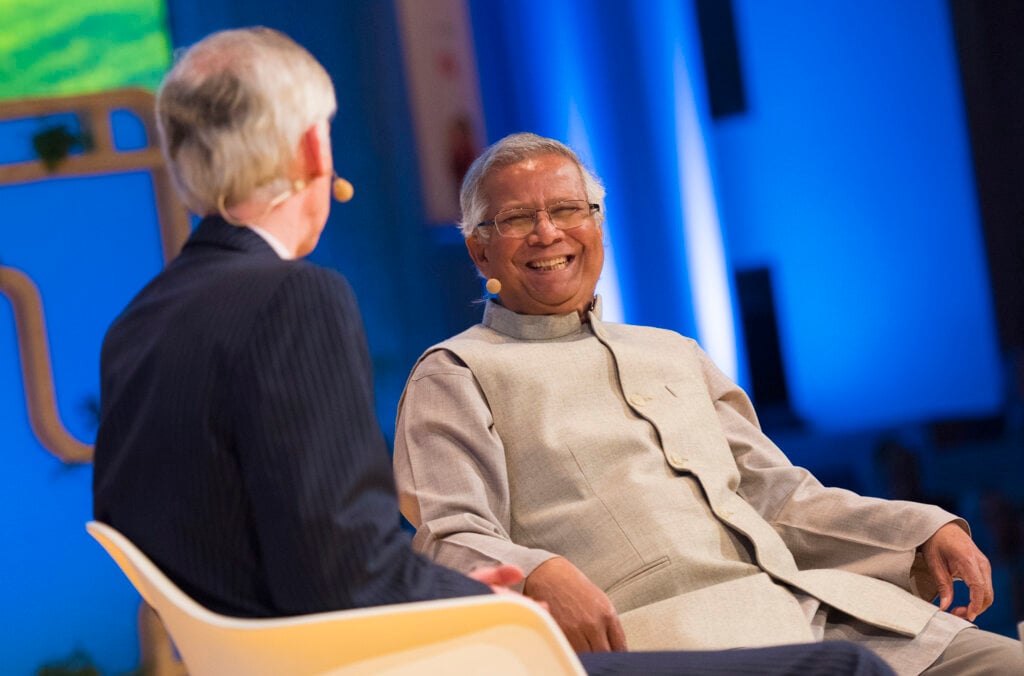What role does food play in our lives? Who influences our choices of food and how do these impact our planet? These are some of the topics that Muhammad Yunus and other Nobel Laureates will debate with experts and thought leaders during Nobel Week Dialogue, 9 December. Registration is now open on www.nobelweekdialogue.org.
Nobel Week Dialogue is an open and free of charge event where science meets society during the Nobel week celebrations in Stockholm. This unique dialogue invites audiences online and on site to explore a compelling topic, gathering a unique panel of Nobel Laureates and world-leading experts. This year, the dialogue will be based on the theme “Your plate. Our planet. The Future of Food”, and offer new scientific and cultural perspectives on food.
”Nobel Week Dialogue is an important part of the Nobel week and an excellent example of the essence of the Nobel Prize: in addition to honouring the most distinguished achievements in science, literature and peace, it inspires people to seek knowledge, question, strive to understand and to improve the world. This year in particular, I look forward to stimulating discussions on the topic of food, new scientific findings and how to eat more sustainably”, says Mattias Fyrenius, CEO Nobel Media.
Nobel Laureates meet chefs, ranchers and cyber farmers
Participating Nobel Laureates include Angus Deaton (Economic Sciences 2015), Muhammad Yunus (Peace 2006), Steven Chu (Physics 1997) and Elizabeth Blackburn (Medicine 2009).
“I am excited to participate in the Nobel Week Dialogue and discuss different perspectives and challenges of food. Science should contribute to solving urgent problems of mankind, and ‘the future of food’ is definitely among those. My experience from previous participation is that this meeting, with its ability to gather experts from different fields to invite to discussions, is the true meaning of bringing science and society closer together”, says Elizabeth Blackburn.
Other inspiring speakers include Caleb Harper, a former data centre architect that is building a collaborative food system for the future, and Nicolette Hahn Niman, a vegetarian and environmental attorney turned livestock rancher. Marion Nestle, professor of Nutrition and Sociology, will debate food politics and shed light on who is really influencing what we choose to eat. Tristram Stuart, author and campaigner, will discuss the vast scale of global food waste.
Your plate, our planet
Our current global food system is unsustainable. In some parts of the world, massive amounts of food are wasted and the food we choose to eat causes severe health issues. In other areas, nearly 1 billion people still face hunger on a daily basis. Furthermore, food production has huge environmental impact, both on a local and global scale. Food is, however, also an important part of our culture, and our relationship with what is on our plate is deeply personal. The topic of food raises several interesting questions and Nobel Week Dialogue will address:
